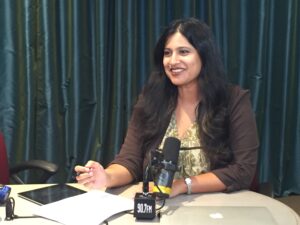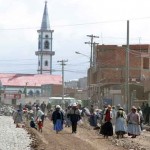The Venezuelan People Stay With The Bolivarian Revolution

Venezuela – Source: wikipedia.org
On July 28, the 70th birthday of Hugo Chávez (1954-2013), Nicolás Maduro Moros won the Venezuelan presidential election, the fifth since the Bolivarian Constitution was ratified in 1999.
In January 2025, Maduro will start his third six-year term as president. He took over the reins of the Bolivarian Revolution after the death of Chávez from pelvic cancer in 2013. Since the death of Chávez, Maduro has faced several challenges: to build his own legitimacy as president in the place of a charismatic man who came to define the Bolivarian Revolution; to tackle the collapse of oil prices in mid-2014, which negatively impacted Venezuela’s state revenues (over 90 percent of which was from oil exports); and to manage a response to the unilateral, illegal sanctions deepened on Venezuela by the United States as oil prices declined. These negative factors weighed heavily on the Maduro government, which has now been in office for a decade after being re-elected through the ballot box in 2018 and now in 2024.
From Maduro’s first election victory in 2013, the increasingly far-right opposition began to reject the electoral process and complain about irregularities in the system. Interviews I have held over the past decade with conservative politicians have made it clear that they recognize both the ideological grip of Chavismo over the working class of Venezuela and the organizational power not only of Maduro’s United Socialist Party of Venezuela but of the networks of Chavismo that run from the communes (1.4 million strong) to youth organizations. About half of Venezuela’s voting population is reliably wedded to the Bolivarian project, and no other political project in Venezuela has the kind of election machine built by the forces of the Bolivarian revolution. That makes winning an election for the anti-Chávez forces impossible. To that end, their only path is to malign Maduro’s government as corrupt and to complain that the elections are not fair. After Maduro’s victory—by a margin of 51.2 percent to 44.2 percent—this is precisely what the far-right opposition has been trying to do, egged on by the United States and a network of far-right and pro-U.S. governments in South America. Read more
With Project 2025 And Agenda 47, The USA’s Coups Come Home To Roost

C.J. Polychroniou
07-29-2024 ~ The authoritarian, dystopian settings that the U.S. created in so many places across the world are being reconceived by ultra-conservative forces affiliated with Trump for the purpose of introducing them here.
Since the rise of the United States into a global power, U.S. policymakers have been keen on halting the spread of popular government abroad by undermining democratic institutions; overthrowing or assassinating elected leaders; and installing brutal, vicious military dictatorships. Indeed, the fact of the matter is that the United States has invaded more countries, organized more coups, and installed more military dictatorships than any other imperialist power in the course of history. During the Cold War alone, Washington staged dozens of invasions, orchestrated or sponsored numerous coups that installed subservient governments, and engaged in total in over 70 attempts at regime change.
U.S. involvement in foreign coups was so widespread that a common joke was that there has never been a coup d’état in the United States because there is no U.S. Embassy there. Of course, the joke was before the political era of former U.S. President Donald J. Trump and thus has lost some of its sting. Because what happened at the U.S. Capitol on January 6, 2021 was a coup attempt incited by the rhetoric of an outgoing president as part of his effort to overturn the results of the 2020 presidential election. Moreover, Trump has warned voters of a “bloodbath” for the country if he is not elected in November 2024. Read more
The Science Of Twins And The Human Fascination With Them

Nancy Segal, professor of psychology, Cal State Fullerton
Fascination with twins and what twin studies tell us about human nature is universal. There is no question that behavioral and medical science advances have happened largely because twins yield a wealth of information just by being themselves.
Twin research takes place at two levels:
(1) Studies that are strictly for twins. Such studies examine the pros and cons of twins being separated at school, dressing alike, or sharing their friends.
(2) Studies with broad implications. Psychological analyses and medical research are conducted to understand the genetic and environmental factors affecting behavior and health which can be applied to the general nontwin population.
Twin Types
There are two main types of twins: Monozygotic (MZ, identical) and Dizygotic (DZ, fraternal). MZ twins share all their genes having split from a single fertilized egg within the first two weeks following conception (there are exceptions). DZ twins share half their genes, on average, having formed from the separate fertilization of two eggs released simultaneously. There are, however, variations within each type. For example, there are MZ twins who show mirror-image reversals and DZ twins with different fathers.
Twin Methods
The classic twin study is simple and elegant. Researchers compare the similarities and differences of identical twins to those of fraternal twins. The greater resemblance between identical twins than between fraternal twins is consistent with the view that genetic factors influence the behavioral characteristic or physical trait under study. Of course, environmental influences also affect every measured trait.
There are variations on the classic twin method, two of them being twins reared apart and twins as couples. Identical twins reared apart offer pure estimates of genetic influence given that they share all their genes, but not their environments. Fraternal twins reared apart offer informative contrasts. Twins as couples focus on the quality and outcomes of twins’ social interactions as the twins work together on a joint project or task. Comparing identical and fraternal twins in this regard tells us about the factors contributing to cooperative or competitive social exchanges.
Research
The research described below is located at the juncture of developmental psychology, behavioral genetics, and evolutionary psychology, with a focus on twin studies. Developmental psychology is concerned with the biological and environmental events, both before and after birth, that underlie changes in intellectual and physical growth. Behavioral genetics (BG) examines genetic factors affecting intelligence, personality, interests, and other measured traits. BG is concerned with variation within groups. Evolutionary psychology (EP) is concerned with how and why the mind is designed the way it is, and how this design, together with environmental events, produces behavior. EP is concerned with human universals. Twin research can assess behavioral-genetic and evolutionary-based hypotheses and questions. Read more
America’s Two-Party System Is A Relic Of The Past And Bad For Democracy

C.J. Polychroniou
07-22-2024 ~ An Interview on the 2024 U.S. Presidential Election with C. J. Polychroniou.
The rematch between Biden and Trump is regarded by many as the most important election in modern U.S. history. It is also a rematch between two men that many voters have serious reservations about and feel that U.S democracy can do much better than having a raving maniac and someone who is too gaffe-prone and seems to be experiencing cognitive decline run for the highest office in the most powerful nation in the world. In this case, however, the real culprit is America’s two-party system, argues political scientist/political economist C. J Polychroniou in an interview with the French-Greek independent journalist Alexandra Boutri, because it severely limits choices for the voters and discourages competition due to a winner-take-all system. Polychroniou also addresses the nature and character of today’s GOP and why a second term for Trump could turn the U.S. into a neofascist dictatorship.
Alexandra Boutri: For the next few months, U.S. elections will be under the spotlight. The rematch between President Joe Biden and former president Donald Trump is pivotal for the future of democracy in the U.S., critically consequential to Washington’s European allies, and potentially transformative for today’s geopolitical realities. The two men also differ radically when it comes to climate change and have different approaches regarding immigration and taxes. They are also quite apart across a broad range of issues related to gender identity and sexual orientation. Do you agree then with the often-made claim that the rematch between Biden and Trump is perhaps the most important election in modern U.S. history?
C. J. Polychroniou: Before I address your question, let me just say that we cannot discount the possibility that we won’t have a rematch between two men that many American voters don’t want anyway because Joe Biden may drop out of the presidential race before next month’s Democratic National Convention. Nearly two-thirds of Democrats want Biden to step aside, according to a new poll conducted by AP-NORC Center for Public Affairs Research. Also, there are solid reasons why many American voters don’t want to see another showdown between Trump and Biden. Trump is simply unfit for the highest office in the land, or any public office for that matter, while Biden, judging from the difficulties he is having with speech and memory, can’t possibly be relied on to serve another 4 years.
Be that as it may, the 2024 U.S. presidential election is enormously important for at least some of the reasons you cited, although parochialism is what drives most American voters. This election is also unlike any other in modern history because American voters are so polarized that the threat of civil breakdown is real. This is the best evidence that binary politics is bad and possibly dangerous for contemporary democracies. American voters don’t have a viable range of choices, but the U.S. political system is set up for two major parties because of the winner-take-all politics. It is mainly the winner-take-all system that has also allowed the superrich to hijack the political system and transform the U.S. from a flawed democracy to a plutocracy. Read more
Who’s A Bigger Threat To Democracy – Immigrants, Or Billionaires?

Sonali Kolhatkar
07-20-2024 ~ Don’t be distracted by the anti-immigrant rhetoric this election. The real impact on democracy comes from moneyed elites.
When President Joe Biden said in a phone call to MSNBC’s Morning Joe recently, “I’m getting so frustrated with the elites… the elites of the party. I don’t care what the millionaires think,” former Labor Secretary Robert Reich wrote that, “It was the first time any modern president has admitted that the elites of the party are the millionaires (and billionaires) who fund it.”
While Biden’s comments were in reference to the movement to oust him from the 2024 Democratic presidential nomination, it was an important admission about who really wields power in our democracy.
We may think of elections in terms of one person, one vote. But, not only do undemocratic structures such as the electoral college dilute our votes, the money that elites flaunt places a hefty thumb on the scales of who represents us. Yet, we hear more about the threat of, say, immigrants than the threat of billionaires, to our democracy.
Billionaires have tried very hard to buy influence and political power. For example, former New York City Mayor Mike Bloomberg donated $20 million toward efforts to reelect Biden this year alone. Four years ago, Bloomberg spent a whopping $1 billion in just four months in an attempt to be the 2020 Democratic presidential nominee. In a testament to the fact that we have a modicum of democratic accountability left within the system as it stands, he failed spectacularly, as others have often done. Voters seem to have a distaste for electing the ultra-rich but have yet to disavow the de facto proxies that their money helps elect.
While billionaires remain influential within the Democratic Party, the last election for which spending records exist shows that moneyed elites overwhelmingly prefer the Republican Party. The nation’s 465 wealthiest people collectively donated $881 million to influence the 2022 midterm elections, most of it to the GOP. Read more
Is The Food Industry Concealing Possible Destruction Of The Tropics From The Public?

Emma Rae Lierley – Rainforest Action Network
07-21-2024 ~ Millions of tons of palm oil are ‘missing’ from Big Food’s deforestation-free claims.
Palm oil is one of the most used vegetable oils in the world and is found in a large variety of packaged products, from shampoos and lipstick to cookies and frozen pizza. Unfortunately, the production of palm oil has been linked to severe environmental and social costs, including significant rainforest destruction and human rights abuses, particularly in countries like Indonesia and Malaysia, which together account for around 85 percent of global exports.
In the United States, out of the seven commodities that were linked to forest destruction, palm oil was the most “significant contributor” to deforestation, according to a March 2024 report. This report by Trase, a “data-driven transparency initiative,” is based on an analysis of figures from October 2021 to November 2023. “[T]he United States’ direct imports of seven forest risk commodities… [are] exposed to at least 122,800 hectares of tropical and subtropical deforestation. This is an area comparable in size to the city of Los Angeles,” states the report.
If any part of the palm oil supply chain is linked to the destruction of rainforests and peatlands or human rights abuses, the product is known as Conflict Palm Oil.
According to a May 2024 report by my organization, Rainforest Action Network (RAN), palm oil is increasingly being used “as an animal feed additive,” however, “much of the international trade in palm oil-based animal feed is obscured for consumers and other stakeholders.”. This lack of transparency raises questions about the actual role of the world’s largest palm oil traders in deforestation and social conflict.
Responding to this crisis and bowing to consumer and stakeholder pressure, many companies have adopted the “No Deforestation, No Peatland, No Exploitation” (NDPE) policy to ensure responsible production. This corporate pledge is meant to prevent further deforestation, safeguard “High Conservation Value” (HCV) areas, eliminate new development on peatlands, and protect Indigenous communities.
Hidden Palm Oil in Animal Feed
Palm oil is found in many foods and household products, but it’s also used in animal feed, especially for dairy cows, and ends up in products like milk, cheese, ice cream, and chocolate. Because it is an indirect ingredient, it is known as “embedded palm oil”—often hidden and not included in companies’ deforestation-free commitments. An analysis of 2022 data by RAN revealed that palm oil-based animal feed was the largest category of palm oil products imported to the United States. Read more


